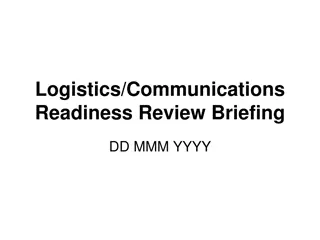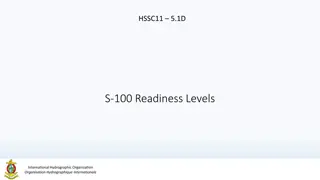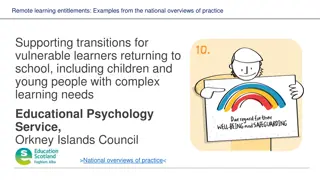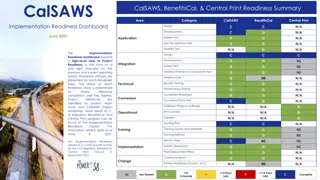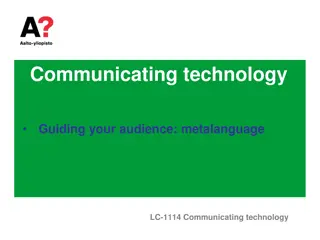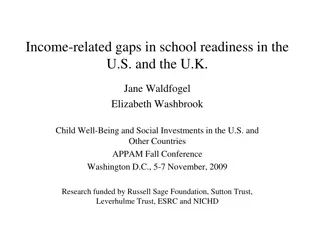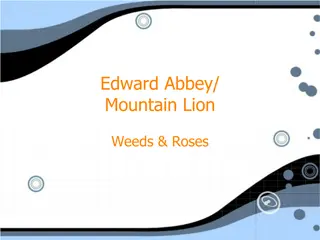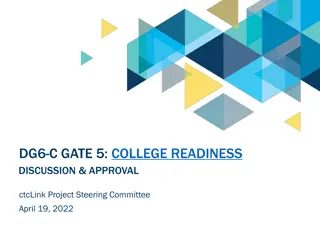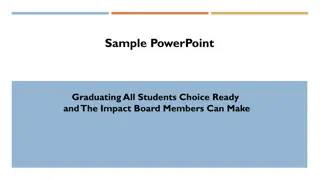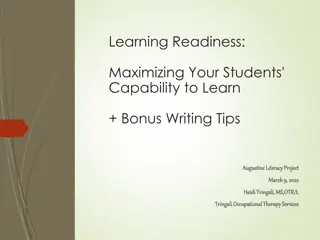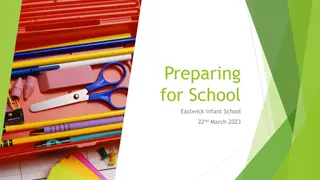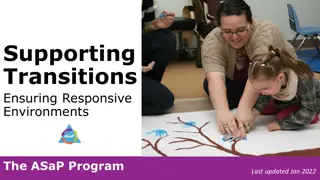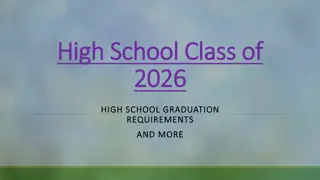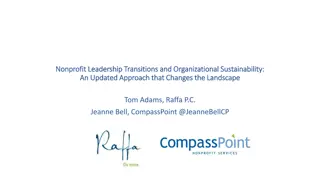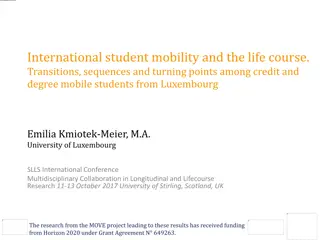School Readiness and Transitions: Key Areas and Tips
Understanding school readiness and transitions is vital for children's successful integration into formal education. Focus areas include social and emotional skills, fine motor skills, language development, and independence. Practical tips for parents and educators involve fostering independence, providing emotional support, and preparing children for the transition to school.
Download Presentation

Please find below an Image/Link to download the presentation.
The content on the website is provided AS IS for your information and personal use only. It may not be sold, licensed, or shared on other websites without obtaining consent from the author. Download presentation by click this link. If you encounter any issues during the download, it is possible that the publisher has removed the file from their server.
E N D
Presentation Transcript
School Readiness & Transitions Presented by Liz Powell and Sonia Wagner | 20/10/21
School and Kinder Readiness Its not a checklist, but an awareness of where they are at. Are they ready to engage in and will benefit from kinder or school experiences? Primary concern is social and emotional skills and for children from trauma, attachment Other skills could include: - Fine motor skills - Gross motor skills - Language - Listening - Visual perception - Auditory perception - Pre reading skills - Pre-maths skills Changes in teachers or children can
Social and Emotional Skills KEY AREAS Separates from caregivers easily Independently selects play areas and activities Self initiate, engage and sustain engagement (as many minutes as age) Work and play beside other children Sit with the group and remain attentive, asking and answering questions Basic independence: shoes, toilet, art smock Self-regulate emotional responses when called on to do something they don t want to do
Social and Emotional Skills are Taught Provide opportunities to share toys with peers Use puppets to rehearse conflict and other adverse situations Discuss how characters in books deal with social situations Role play new situations, conflict or making new friends Model how to put things on a catastrophe scale Let them be disappointed Praise effort not outcomes Develop their emotional vocabulary and understanding Programs like group therapy or school readiness programs may help Search online eg Kid Sense offer a tasks and activities guide
The Transition Before School Starts Frequent visits to the school grounds and school website to see places and spaces and a chance to meet a new friend Children undertake practical tasks like organising uniforms and bags Items clearly marked and easy to access eg lunch box that opens easily, pull on s rather than zip ups Be enthusiastic about school but don t overtalk it Read books like Starting School by Jane Godwin and Anna Walker Arrive early and meet a friend before school Be organised and treat yourself on their first day back too Information about the children is well understood, shared and valued with teachers Children have the opportunity to have their say about what is important to them, so include them Processes are adapted in response to the child s needs Support is planned and delivered through a collaborative approach Source: https://www.education.vic.gov.au/childhood/professionals/learning/Pages/transfaqs.aspx https://www.epinsight.com/post/managing-change-trauma-informed-transitions https://raisingchildren.net.au/school-age/school-learning/school-choosing-starting-moving/starting-school
The Transition Within the School Trauma informed Warm and consistent routines (calming, settling, truly welcomed) Home-school visual or other diary or system to communicate with Review of the day ahead or a schedule to mitigate emotional disregulation with dedicated time to undertake a calming activity on entering the classroom Scheduled movement breaks and calming activities before or after activities with simplified, reinforced and repeated instructions Help them anticipate endings to tasks, being mindful of preventing them from finishing a task as sudden changes can create hypervigilance to transitions. Use visual and verbal aids (sand timer) Empathy when finishing an enjoyable or motivating task Providing predictable spaces or places, and sensory breaks, for stressful times of the day, like recess or lunch, or sports days Source: https://www.education.vic.gov.au/childhood/professionals/learning/Pages/tr ansfaqs.aspx https://www.epinsight.com/post/managing-change-trauma-informed- transitions
Who can help? Maternal Child Health Kinder Teachers School Teachers Contact your local MCH nurse Attend kinder information sessions Speak with teachers early, before school starts, and often in the early stages
Signs they may not be ready Appear much younger than peers Short attention span and poor concentration Clumsy and uncoordinated Struggle to hold a pencil or crayon or cut with scissors Dependent on adults for self care, like toileting or opening lunchbox Unable to approach other children, engage in play, share toys or ask questions and communicate with
Resources A Parents guide to School Readiness, Dr Kirsty Goodwin Early Life Foundations, Dr Kathy Walker, School Readiness Going to School Practical Tips Raising Children


